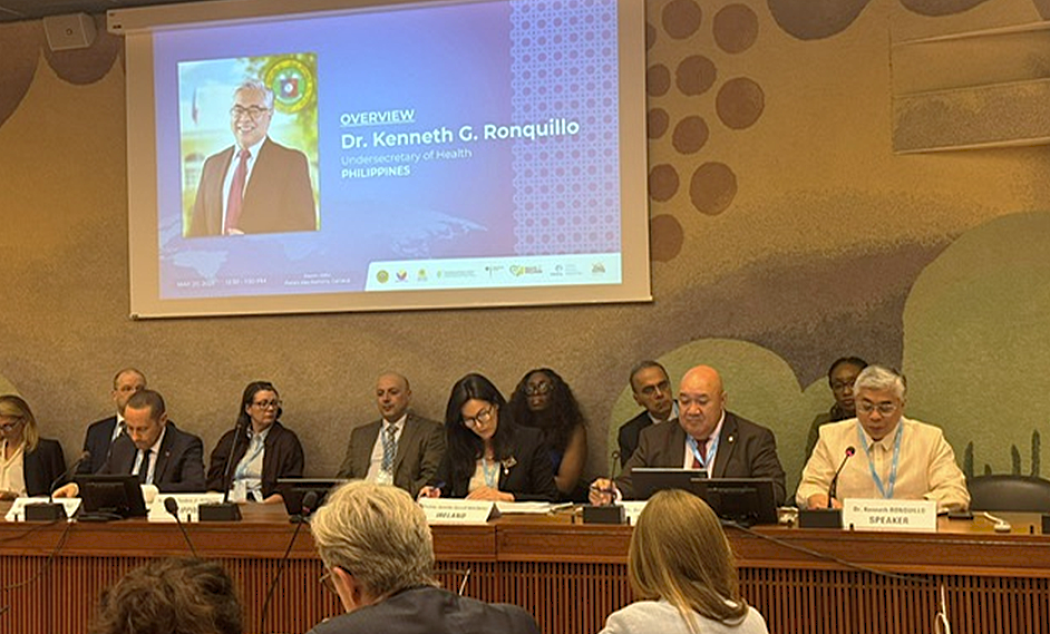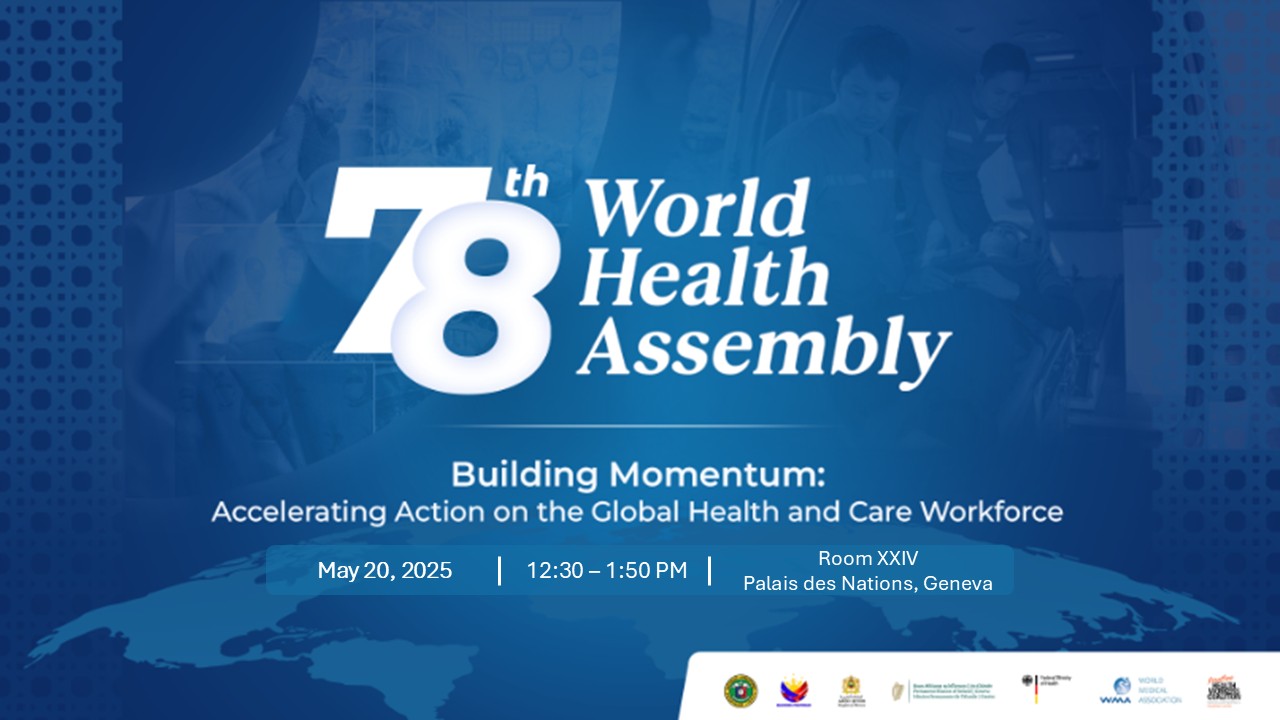A Global Call to Act: Leading the Global Health Workforce Dialogue at WHA78

“The strength of any health system lies in its people,”
-H.E. Dr. Teodora Herbosa, Secretary of Health, Philippines; President of the 78th World Health Assembly
On the occasion of the 78th World Health Assembly, in Geneva, Switzerland, the Frontline Health Workers Coalition co-hosted the side-event, “Building Momentum: Accelerating Action on the Global Health Workforce by 2030,” alongside the governments of the Philippines, Morocco, Ireland, Germany, Jamaica, and the World Medical Association.
The event served as a rallying call to adopt the resolution, Accelerating action on the global health and care workforce by 2030, emphasizing the need to catalyze momentum and commitment toward ensuring an empowered, equitably distributed, and adequately supported workforce— the cornerstone of Universal Health Coverage (UHC), resilient health systems, and global health security.
Opening the event, Dr. Kenneth G. Ronquillo, Undersecretary of the Philippine Department of Health, stated: “The global shortage of health workforce remains a serious global problem… a large task that cannot be the sole undertaking of a country, ministry, or even a sector.” This push toward unified action was echoed throughout speaker testimonies as global leaders called for greater and more sustainable investment in the health workforce, stronger bilateral commitments and accountability for ethical recruitment practices, and dedication to providing enabling education, remuneration, and safe and supportive working environments in order to build and retain a robust global supply of health workers.
Dr. Vanessa Kerry, WHO Director-General Special Envoy for Climate Change and Health, and Co-founder and CEO of Seed Global Health, and Dr. Uche Ralph-Opara, Chief Health Officer at Project HOPE, represented the Coalition as moderator and panelist. Dr. Kerry introduced the panel discussion with a rousing call for recognition of the health worker crisis as both a human rights issue and an economic imperative, necessitating long-term investment in workforce development. Dr. Ralph-Opara, urged a shift toward dedicated political will and greater domestic financing– moving away from fragmented, transactional implementation strategies of the past. All core actors must assume the roles and responsibilities of engaging with the leading principles of partnership, co-design, and systems-based thinking in order to construct a sustainable, aligned health ecosystem.
Ms. Rachel McKenna, Chief Nursing Officer at Ireland’s Department of Health described their national efforts to bolster data collection mechanisms and establish a more sustainable domestically-sourced health workforce. Dr. Yassine Aqachmar, Senior Advisor to the Secretary General of the Ministry of Health and Social Protection Kingdom of Morocco, emphasized retention through professional development, inclusive policies, and the strategic application of innovative technologies such as AI and digital health solutions to relieve burdensome workloads. Dr. Ashok Philip, President of the World Medical Association, noted that these everyday successes are enabled by sustained investment in data systems and global health networks. The future of these health systems is vulnerable, necessitating urgent commitments from a more diverse set of global contributors. Jim Campbell, Director of Health Workforce at WHO linked these commitments to the Pandemic Agreement, reinforcing the relevance of health workforce reform in global health security.
Dr. Roland Jopp, Head of the Division of Skilled Labour Migration at the German Federal Ministry of Health, discussed Germany's co-development of recruitment pilots with India, Mexico, and the Philippines, designed to embody the ethics of mutual benefit and sustainable capacity building. Similarly, Dr. Simone Spence, Director of Health Promotion & Protection at the Jamaican Ministry of Health, highlighted the struggles of outward migration and called for ethical migration partnerships, as modeled in Jamaica’s partnership with the Philippines, which enables the exchange of proven strategies and frameworks for health workforce development, task-shifting, and retention. However, these partnerships can’t succeed without commitments to better alignment on global recruitment practices from destination countries. Dr. Saia Ma’u Piukala, Regional Director of the WHO Western Pacific Region called for country commitments to the shared global responsibility for health workforce capacity and well-being. As H.E. Jennifer Carroll Macneill, Ireland’s Minister of Health, continued, these political commitments are translated into action first at the country level, through continuous investment in the skill maximization of the existing supply of health workers, thus strengthening domestic health systems without jeopardizing LMICs.
Dr. Herbosa’s closing remarks called for reciprocity and sustainability, emphasizing that resilient health systems depend on a well-distributed, adequately supported workforce. Participants unanimously called for accelerated, ethical, and well-financed action to build a high-performing health workforce by 2030. Investing in health workers is a commitment to human dignity, economic prosperity, and global cooperation.

